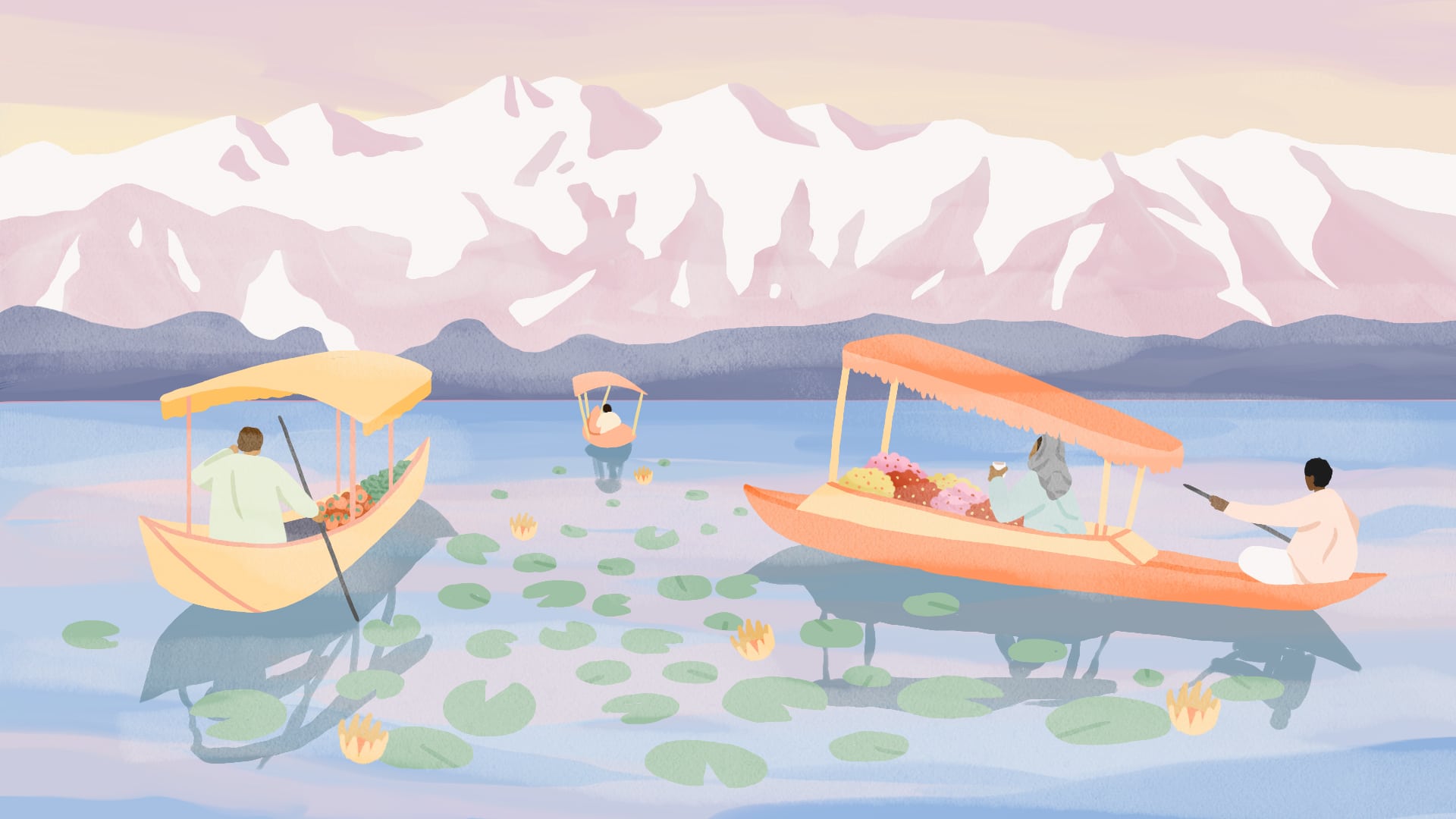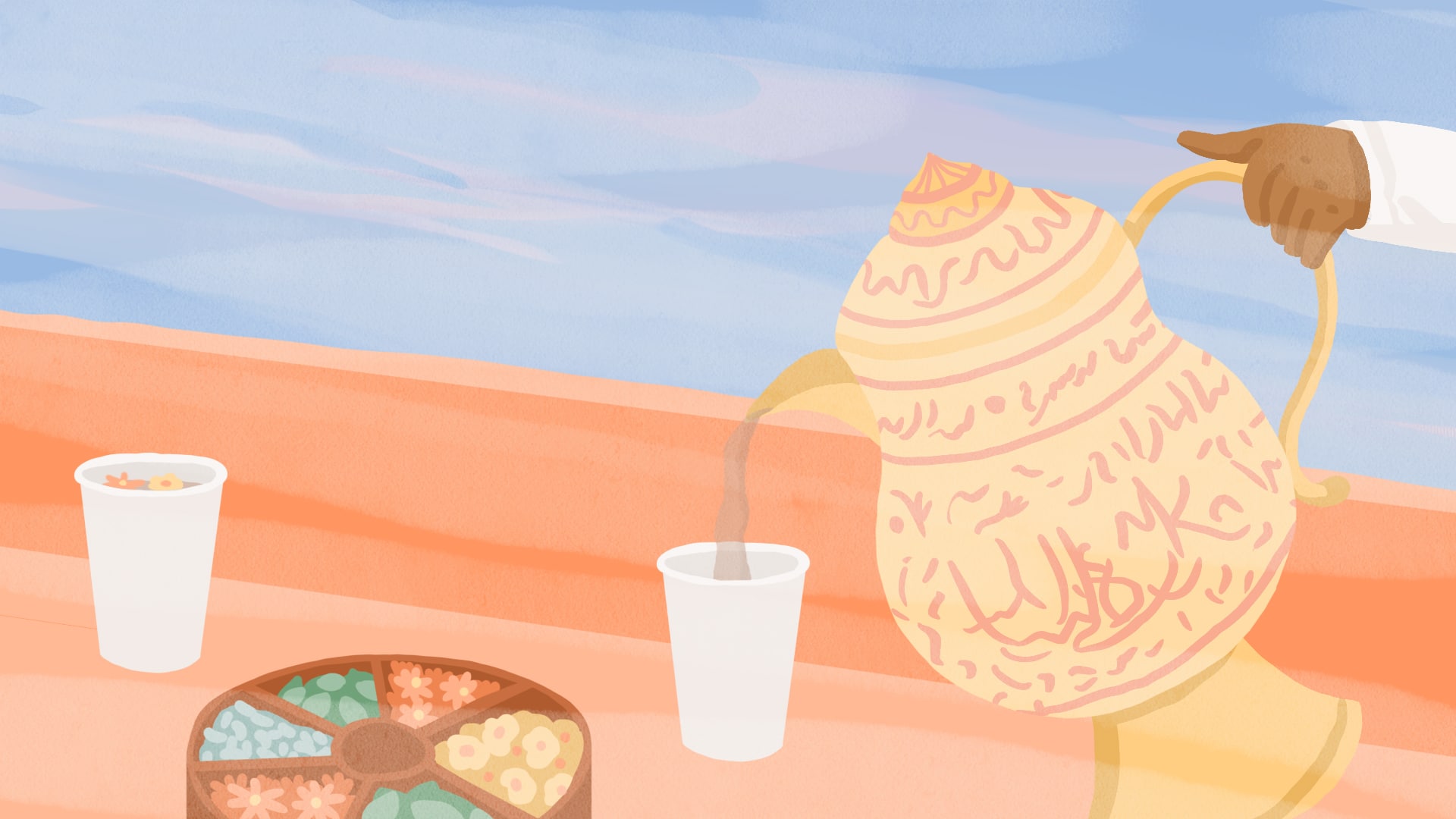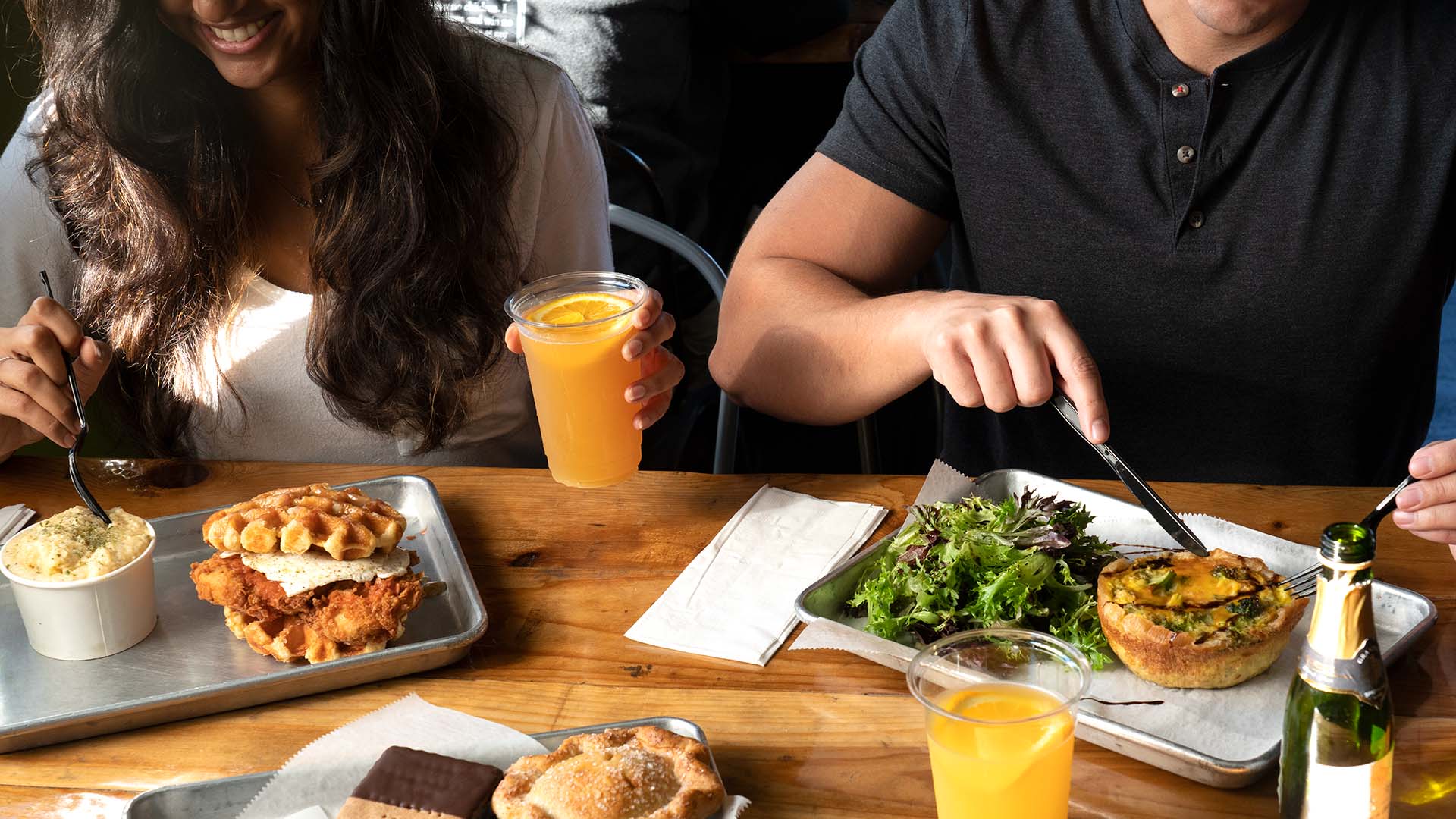
I wake up at 4 a.m. to the sound of an imam chanting the Muslim call to prayer from the loudspeaker of a nearby mosque in Srinagar, India. At this early hour, darkness still envelops the city, the largest in India’s northernmost state of Jammu and Kashmir.
Normally, I am not an early riser, but today I hurry to dress in my salwar kameez and meet my driver, Mohd Shafi, who brings me to the shore of Dal Lake. With its traditional houseboats and floating gardens, Dal plays an integral role in the city’s commerce and culture.
At this early hour, my plan is to visit the town’s floating market, held each day before dawn breaks. A lone boatsman meets us at the lake’s docks and rows his red-carpet-draped shikara, a traditional wooden boat, onto the cool and misty lake. There is no one nearby as far as I can see, but then, with not a single light around us, I can’t really see anything.
Suddenly, from the foggy gray mist, another boatsman emerges with vegetables stacked on his long narrow boat, then another with fresh flowers, and yet another selling tea. It’s as if an entire city has awakened from the peripheries of the calm waters. Slowly, the fog lifts. Beyond the lake, the towering Himalaya mountains appear, and around me, lotus flowers bloom in the wetlands. It is a magical sight.
It’s here that I meet the kahwa shikara, or the floating tea vendor. He enthusiastically rattles in his broken English, “I am selling Kashmiri saffron kahwa — 16 varieties mix!” trying to attract the attention of those who may need a pick-me-up.
While balancing barefoot on his delicate, low-slung boat, he inserts hot coals into a brass kettle, or samovar, and serves small cups of tea to other vendors, mainly fruit, flower and vegetable sellers.
Wholesalers come to this part of the lake long before sunrise mainly to sell the produce they’ve grown along the banks of the lake. Retailers buy their goods, taking them back to be sold at shops and markets once the rest of the world awakens.
Without much delay, Shafi orders two cups of kahwa for us. The tea vendor flawlessly transacts the piping-hot paper cups and rupees across boats without anyone needing to move from their seats.

Though I had tasted kahwa before, it feels more special today. Perhaps the chilly air, the pristine scenery or my half-conscious morning state makes me appreciate each sip of the sweet liquid even more. The aroma of warming spices, the flavor of luscious saffron and the crunch of the nuts all awaken my senses to realize that this is much more than a cup of caffeine.
Kahwa is a warm beverage typically found in the Kashmir Valley, and the word (pronounced kehh-waah) means “sweet tea.” It is made by boiling green tea leaves with saffron threads, cinnamon bark and cardamom pods — all grown and harvested locally. Almonds and honey are added to the teacup before serving.
Kashmiri people believe that kahwa is a health tonic that provides warmth and energy, as well as relief from cough, cold and stress. But in fact, kahwa is much more than that. It is also a symbol of Kashmiri hospitality.
Whenever you enter a home, a shop or a hotel, you are first offered a cup of the home brew. There is no particular time of the day to drink kahwa. It can be served with a piece of girda (yeast flatbread) at breakfast, while chatting with friends in the garden, at elaborate wedding dinners, and while you negotiate over the price of pashmina shawls in a marketplace.
There is no occasion in Kashmir that does not include kahwa, as I discover while traveling around the province with Shafi.
Kashmir was once nicknamed the “Switzerland of India” as it attracted honeymooners, Bollywood filmmakers and hikers from around the world to its manicured gardens, tulip-covered fields and snowcapped mountains.
In recent years, political and military conflicts near Kashmir’s border have thinned visitors and economically and emotionally drained the locals. Yet among all that turmoil, they remain resilient and kind. During my visit, strangers go out of their way to refer me to artisans, doormen sincerely inquire of my experiences, and shop owners invite me to have a cup of kahwa with their families.
Years later, Shafi still calls me regularly to inquire about the health of “his sister” (as he fondly addresses me) and invites my family to come visit Kashmir.
I draw parallels between Kashmir and kahwa — both are rich in symbolism and tradition, sweet and inviting, turbulent yet normal. Like the people of Kashmir, this tea is complex yet simple. Each person brews it slightly differently — sweet or unsweet, with or without nuts, with saffron threads or dried rose petals.
No matter what the recipe or the situation, every Kashmiri person drinks kahwa multiple times a day, drawing comfort and renewing optimism with each sip. And people like myself return with fond memories of the tea and those who make it.






